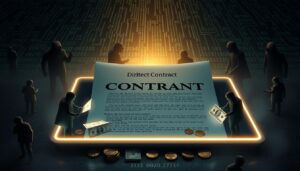Effectively managing expenses is crucial for both individuals and businesses aiming to maintain financial health and achieve long-term goals. With the ever-changing economic landscape, keeping track of where your money goes can be challenging yet essential. In this post, we’ll explore key strategies to help you understand and control your expenses better.
Understanding your expenses starts with a comprehensive approach to tracking spending habits and identifying areas where you can cut back. Many people find themselves unaware of how small, everyday costs can add up over time. By breaking down your expenses into categories, you can gain clearer insights and make informed decisions about budget allocation.
Incorporating technology can greatly enhance your ability to manage expenses efficiently. With tools like budgeting apps and financial dashboards, you can easily monitor your spending patterns in real time. Whether you’re saving for a specific goal or trying to reduce debt, having a clear picture of your expenses is the first step toward financial freedom.
Tracking and Categorizing Expenses
To begin managing expenses effectively, it’s important to track every transaction meticulously. This means documenting all purchases, whether small or large, to ensure nothing is overlooked. By keeping a detailed record, individuals can readily identify spending patterns and recognize which categories consume the most resources.
Once transactions are tracked, categorizing these expenses can provide further clarity. Common categories might include housing, groceries, utilities, and entertainment. By aligning expenses with these categories, one can quickly pinpoint which areas may require adjustments or more disciplined spending practices.
Furthermore, adopting a regular review schedule is essential. Reevaluating expenses on a weekly or monthly basis allows individuals to stay informed about their financial habits. Through this consistent review, necessary corrections can be made promptly, helping maintain a balanced budget.
Budgeting and Planning
Developing a well-thought-out budget is the cornerstone of effective expense management. A budget can serve as a roadmap for spending, guiding individuals and organizations towards their financial objectives. By setting spending limits across different categories, one can prioritize needs over wants.
Planning ahead is equally important as budgeting. By anticipating irregular expenses, such as annual insurance payments or holiday gifts, individuals can allocate funds accordingly. This foresight prevents the stress of scrambling for resources when these expenses arise unexpectedly.
Additionally, it’s beneficial to incorporate flexibility into budgeting strategies. Financial landscapes can evolve, and being adaptable to these changes without losing sight of the overall financial goals is critical. A budget that adjusts with life’s dynamic nature remains a viable tool for financial management.
Utilizing Technology for Expense Management
In today’s digital age, technology plays a pivotal role in managing expenses more effectively. Budgeting applications and financial software provide users with tools to track and analyze expenditures seamlessly. These platforms often come with features like notifications, reminders, and goal-setting capabilities that enhance financial awareness.
Moreover, these tools often offer visual representations of spending trends, such as charts and graphs. This visualization enables users to quickly grasp their financial situation, identifying areas that may require immediate attention or modification. The real-time data feedback is invaluable for making informed decisions.
Artificial intelligence and machine learning are also making strides in personal finance. These technologies can automatically categorize expenses and suggest cost-saving measures based on spending behavior. By leveraging such advancements, managing financial resources becomes more intuitive and less time-consuming.
Cutting Unnecessary Costs
Reducing unnecessary expenses can significantly impact financial health. Start by distinguishing between ‘needs’ and ‘wants,’ eliminating discretionary spending that does not align with personal or organizational priorities. This conscious effort can free up resources for more critical financial objectives.
Another effective strategy is negotiating better rates for recurring expenses. Whether it’s telecommunication services or insurance policies, a simple negotiation can lead to significant savings over time. Regularly reviewing these arrangements ensures that one is not overpaying for essential services.
Furthermore, consider adopting a minimalist approach, focusing on quality rather than quantity. By valuing experiences over material possessions, individuals may find themselves more satisfied and less inclined to invest in unnecessary items. This lifestyle change can yield long-term financial benefits.
The Importance of Financial Goals
Establishing clear financial goals provides direction for managing expenses. By defining specific objectives, such as saving for retirement or purchasing a home, individuals have a clearer purpose for managing their resources effectively. These goals serve as motivation to adhere to financial disciplines.
Setting realistic milestones is crucial in this journey. By breaking down larger goals into achievable steps, individuals can celebrate small victories, maintaining momentum toward larger aspirations. This approach prevents the feeling of being overwhelmed and encourages continuous progress.
Finally, reviewing and adjusting these goals periodically ensures they remain relevant. As personal circumstances and economic conditions change, financial objectives may need reassessment. Keeping these goals aligned with current realities ensures they remain attainable and meaningful.
Conclusion
Managing expenses requires a proactive approach centered on understanding, planning, and adapting financial practices. By tracking expenditures and utilizing technology, individuals and organizations can better navigate their financial landscapes. Whether deploying cost-cutting measures or setting meaningful financial goals, a disciplined strategy is essential. Ultimately, continuous evaluation and flexibility ensure financial resilience in an ever-evolving world.




